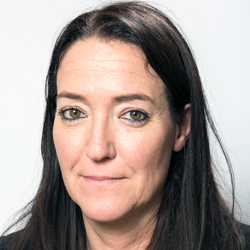Draining Estates Of Their Value
N.B: Following an announcement made by the Government in July 2015, the main Paying for Care provisions to introduce the £72,000 capital cap, which were due to take effect in April 2016, have been postponed until April 2020.
The care fees cap was announced on a fanfare of fairness, but will instead result in people paying considerably more than the £72,000 promised by Government.
Cate Searle, Director at specialist Community Care lawyers, Martin Searle Solicitors, today warns Professional Deputies and private client teams of what to expect under the new regime.
The Government has made repeated announcements that from April 2016, no one will have to pay more than £72,000 towards the costs of their care; and that many people will pay much less.
This radical overhaul of the paying for care rules was initially warmly welcomed by the public and the media – the present reality being that there is no limit to what care and support can cost.
This means that on average, elderly people expect to pay around £28,500 a year in residential care costs, rising to over £37,500 a year if nursing care is necessary while some are forced to pay in excess of £50,000 care fees a year with regional variations adding considerably to the bill.
Families feel bitter as they watch their parents’ homes and savings dwindle to almost nothing after several years in a care home setting.
As time has progressed, and as the Government has become curiously silent on the new paying for care rules, professionals and the media have begun to realise that the £72,000 cap is simply misleading and completely incorrect. However, many members of the public and indeed our clients have not yet realised the fact and extent to which the headlines are wrong; and that many of them will be no better off as a result of these funding reforms.
What is not being conveyed properly by the Government is that the protection from unlimited costs applies only to an individual’s eligible care and support needs. How Social Services assess and agree an individual’s eligible needs can be difficult for non-community care professionals to get to grips with.
Using new national criteria, Social Services will determine what care & support needs they think your client has and which of those fall within their potential funding duties. Only care and support provided to meet those identified needs will “count towards the cap”. The rest – some of which could be very basic daily needs – will be regarded as either ineligible or as a matter of choice, and the element that your client pays towards those costs will not be added in to the total towards the cap.
Confused?
Linked to this is the whole issue of market rates and realties. Having narrowed down which of your client’s needs are eligible, Social Services will then decide how much they would normally contribute towards meeting those needs if they were paying for your client’s care and support. This is the amount that will be counted towards your client’s cap. This will be costed at the rates that the Local Authority can negotiate with care providers and not at the actual market rate that your client has to pay.
The Government refer to this as being a matter of choice for your client. So, they tell us that if we choose to spend more on care and support than the council would normally pay, for example moving to a more expensive care home, or paying for support for non-eligible care needs, then those extra amounts will not count towards your client’s cap on care costs. In addition of course our clients living in care homes will also have to pay something towards the costs of food, energy bills and accommodation. These ‘daily living costs’ are being fixed at £230 per week from April 2016, which does not seem an unreasonable figure, but the point not being broadcast is that this element does not count towards the £72,000 cap either.
Professional Deputies and Attorneys have the collective responsibility for thousands of individuals and their families who will soon need to pay for some or all of their care, but many acknowledge that they have misgivings about how the new Care Act 2014 could impact upon their role.
In theory, anyone who represents older or vulnerable adults, including any that might be at risk of abuse or neglect, should be poring over this new Act but in reality, it is unlikely they will have the time or the resources. As a result, thousands of people could end up paying for care beyond the £72,000 cap which should soon become the limit.



